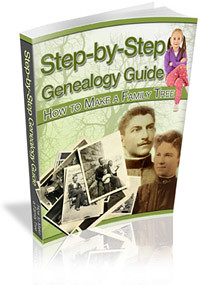I have been reading the "Write Sisters" blog about some less-obvious places to look for information when you are researching a life story or family history. 
I found this recommendation to be very useful:
Many of the old Town Histories have been scanned and are available from commercial genealogy sites such as Ancestry.com. At the same time, a lot of them are also on the internet archive (http://www.archive.org/, or google “wayback machine”) – here you are more likely to find an OCR scan that hasn’t been corrected, not as easy to read – but free!
One thing I sort of don't agree with is The Write Sisters take on family histories. They make the point that:
Family history books are self-edited and published, usually the result of someone’s life-long obsession; again they may be self (or rather, ancestor)-aggrandizing, but they also often preserve the memories of people who were elderly a hundred or more years ago.
Yes, all sources need to be checked and balanced for their viewpoint, however, if you can source a real life story of family history that has been made by oral recording or direct interview of some sort then you have some very powerful information at your finger tips. What is written in the "official records" is not always the correct story.
When you embark on writing a life story or family history sometimes you will need to dig a bit and shine a light on dark corners just to find that loose thread that's worthwhile pulling on and yes, it can get very expensive if you are just stabbing in the dark. Blog's like The Write Sisters can offer some useful tips on how to short cut your research.
You might also find that the Step by Step genealogy Guide by Chris Clegg can save time and money in getting started. It has chapters on getting started, creating a family tree, searching and publicly available records. It certainly seems to be a worthwhile guide.

 Roseanne Cash is gifted as both a lyric and melody writer and this memoir, "Rosanne Cash Composed" proves that she is not too bad with prose either.If you are interested in Rosanne's memoir then you can find a great review of it with some interesting insights and
Roseanne Cash is gifted as both a lyric and melody writer and this memoir, "Rosanne Cash Composed" proves that she is not too bad with prose either.If you are interested in Rosanne's memoir then you can find a great review of it with some interesting insights and